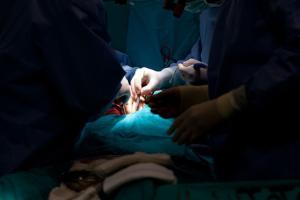Here are a few common questions regarding the bypass surgery

This image has been used for representational purpose
Bypass, this word starts ringing in the most villainous terms in the ears, and the most hardened person in the world also starts thinking of the so-called alternative medicine. Sitting in the hospital of a metro city in India with all the medical paraphernalia to guard one, and take care in this difficult situation, many patients and relatives suddenly feel insecure and helpless. Dr Chandrashekhar Kulkarni, Consultant-cardio vascular thoracic surgery at Global Hospital, Mumbai answers a few common questions regarding the bypass surgery.
ADVERTISEMENT
Is bypass surgery safe?
Yes, CABG or bypass has been performed since 40-50 years, and daily addition of medical and scientific knowledge has transformed into around 1.5 to 2 lakhs heart surgery numbers in India, alone. Many clinical trials and research papers have reemphasised the benefits and efficacy in saving multiple lives and maintaining smiles on the faces of the patients and most importantly, give them an opportunity to lead a second innings.
Will one be able to walk or work? How many months of bed rest?
Surgery is like a speed breaker. You must go over it and then accelerate. Most of the patients are walking 500 meters, and climbing a flight of stairs within 7 days of the operation. A patient is back to desk job in 4 weeks and behind the steering wheel in 3 months (obviously with a seat belt).
Isn't bypass surgery too painful?
Surprisingly, the surgery pain is very less after the first two or three days, and patients do manage with only a tablet of crocin. Some patients have some dull sense of tightness in the chest for few days which is improved by physiotherapy. The resistance to one of the safest and well documented open-heart procedures is mind-boggling. Even in presence of medical conditions like Diabetes, blood pressure, mild kidney issues, heart dysfunction; Bypass can be performed with relative safety and efficacy, and good recovery in 98 to 99 per cent of patients. The remaining one or two patients have issues due to the previous delay in treatment or severe dysfunction and emergency conditions.
Especially in patients with diabetes, CABG (bypass) has shown to be most effective and long-lasting treatment option in the presence of 3-4 significant blocks. Many scientific studies have pointed to a massive reduction of heart attack events, readmission events and improved life span in almost 95 per cent of patients. More so, this effect stays on for around 10-15 years adding significant value in the family and personal life of an individual. Restitution of normal heart function gets the patient back on the productive earnings track adding significant value to the family and society with reduced dependence on accumulated savings. Simple techniques of keeping diabetes under control are more than sufficient to prevent the dreaded complications of infection at bay.
In a price-sensitive developing country like India, prevention of readmission and reintervention itself adds up to a lot of savings in the long run. And obviously, no amount of money can ever get you back the vitality and heart function once it is lost. A timely procedure can set you right for a long time with the least possible discomfort.
Keep these few things in mind
- Early detection and procedure, if needed
- Lifestyle changes as per advice like quitting smoking and tobacco
- Adequate control of blood pressure and diabetes
- Exercise like walking 5kms a day within 3 months of surgery
- Weight loss of around 5-10kg (as per case) and same weight throughout the lifetime
- Early resumption of work
- Stress-free atmosphere and relaxation
These few things will help the patient, and family get back right in to the act after the surgery.
Everything you need to know about minimally invasive bypass surgery
A recent new option of the minimally invasive bypass with a small incision of around 6-7 cm to the left chest has shown to be beneficial to most patients. This not only reduces the pain and blood loss but also has faster recovery times and near-zero risk of infection. The patient is usually discharged by 6 days after the operation. A damaged heart is never possible to be restituted back to its original function. Risk is the only increasing outcome of a procrastinated decision.
Also Read: Can heart patients run a marathon safely?
Catch up on all the latest Crime, National, International and Hatke news here. Also download the new mid-day Android and iOS apps to get latest updates
The content is not intended to be a substitute for professional medical advice, diagnosis, or treatment. Always seek the advice of your physician or other qualified health providers with any questions you may have regarding a medical condition.
 Subscribe today by clicking the link and stay updated with the latest news!" Click here!
Subscribe today by clicking the link and stay updated with the latest news!" Click here!







